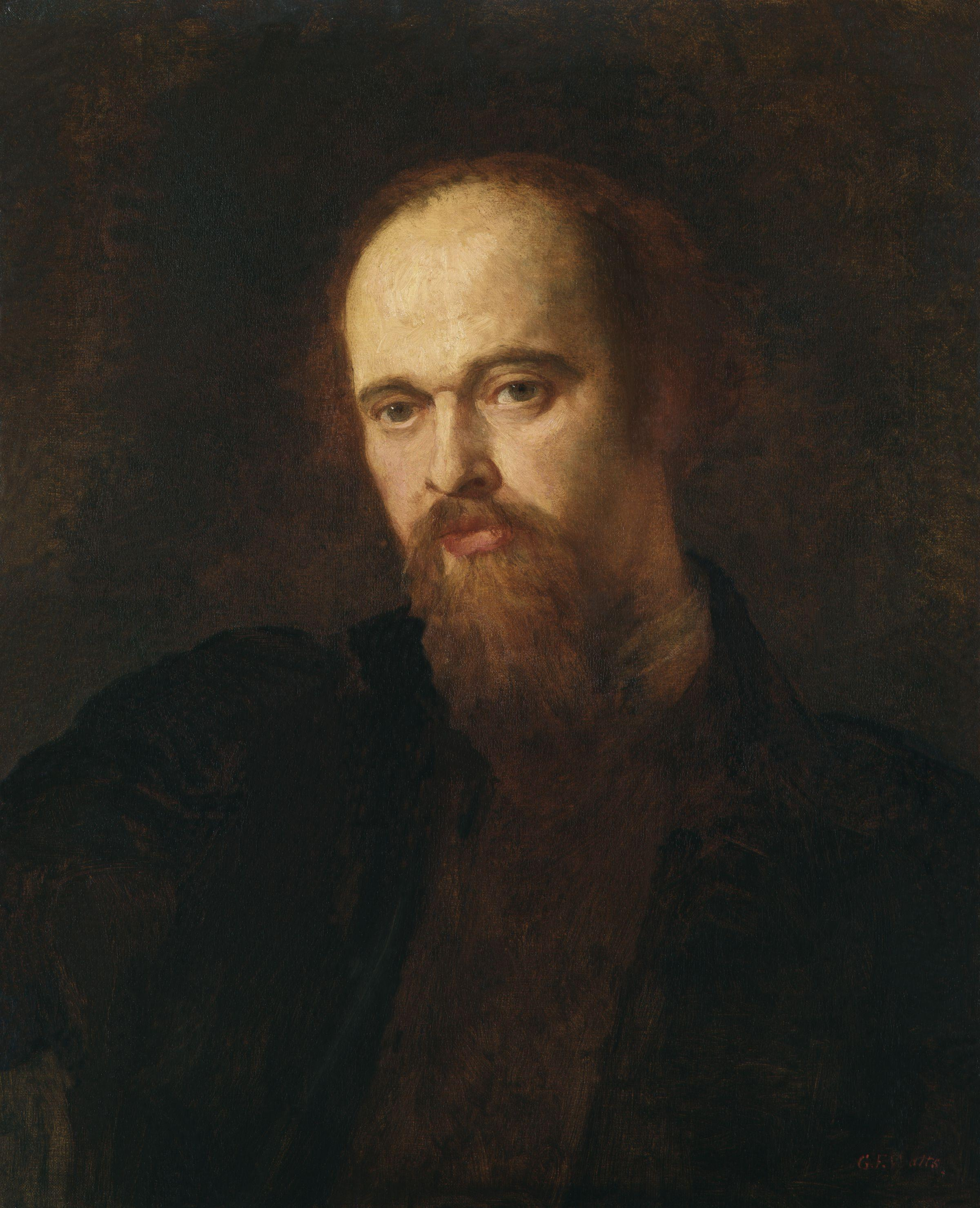[(en) The worst moment for the atheist is when he is really thankful and has nobody to thank.]
cit. dle CHESTERTON, G. K. St. Francis of Assisi (1923), s. 88. (angličtina)
Dante Gabriel Rossetti citáty a výroky
Dante Gabriel Rossetti: Citáty anglicky
“Sometimes thou seem'st not as thyself alone,
But as the meaning of all things that are.”
Heart's Compass.
The House of Life (1870—1881)
The Choice
Kontext: Nay, come up hither. From this wave-wash'd mound
Unto the furthest flood-brim look with me;
Then reach on with thy thought till it be drown'd.
Miles and miles distant though the last line be,
And though thy soul sail leagues and leagues beyond,—
Still, leagues beyond those leagues, there is more sea.
“Look in my face; my name is Might-have-been;
I am also called No-more, Too-late, Farewell.”
A Superscription. Compare: "My name is might have been; my name is never was; my name's forgotten", Courtney Love (with Hole), "Celebrity Skin".
Zdroj: The House of Life (1870—1881)
The Blessed Damozel http://www.cs.rice.edu/~ssiyer/minstrels/poems/715.html (1850)
The Blessed Damozel http://www.cs.rice.edu/~ssiyer/minstrels/poems/715.html (1850)
The Choice
The Cloud Confines, reported in Bartlett's Familiar Quotations, 10th ed. (1919).
from Not As These in The House of Life 1870 kindle ebook ASIN B0082R81E8
The King's Tragedy, reported in Bartlett's Familiar Quotations, 10th ed. (1919).
“If the light is
It is because God said 'Let there be light.”
At Sunrise, reported in Bartlett's Familiar Quotations, 10th ed. (1919).
“A Sonnet is a moment's monument,—
Memorial from the Soul's eternity
To one dead deathless hour.”
Introductory Sonnet.
The House of Life (1870—1881)
Stanza 7.
The Blessed Damozel http://www.cs.rice.edu/~ssiyer/minstrels/poems/715.html (1850)
“Think thou and act; to-morrow thou shalt die”
The Choice
Kontext: Think thou and act; to-morrow thou shalt die
Outstretch'd in the sun's warmth upon the shore,
Thou say'st: "Man's measur'd path is all gone o'er:
Up all his years, steeply, with strain and sigh,
Man clomb until he touch'd the truth; and I,
Even I, am he whom it was destin'd for."
How should this be? Art thou then so much more
Than they who sow'd, that thou shouldst reap thereby?
Fragment, reported in Bartlett's Familiar Quotations, 10th ed. (1919).
The Choice
The Sea-Limits, reported in Bartlett's Familiar Quotations, 10th ed. (1919). Compare: "I send thee a shell from the ocean-beach; But listen thou well, for my shell hath speech. Hold to thine ear / And plain thou'lt hear / Tales of ships", Charles Henry Webb, With a Nantucket Shell; The hollow sea-shell, which for years hath stood / On dusty shelves, when held against the ear / Proclaims its stormy parent, and we hear / The faint, far murmur of the breaking flood. / We hear the sea. The Sea? It is the blood / In our own veins, impetuous and near", Eugene Lee-Hamilton, Sonnet. Sea-shell Murmurs'.
Sudden Light http://www.theotherpages.org/poems/roset03.html#1, st. 1 (1881).
The Blessed Damozel http://www.cs.rice.edu/~ssiyer/minstrels/poems/715.html (1850)
“Thou fill'st from the wingèd chalice of the soul
Thy lamp, O Memory, fire-wingèd to its goal.”
Mnemosyne, reported in Bartlett's Familiar Quotations, 10th ed. (1919).
Stanza 1.
The Blessed Damozel http://www.cs.rice.edu/~ssiyer/minstrels/poems/715.html (1850)
The Blessed Damozel http://www.cs.rice.edu/~ssiyer/minstrels/poems/715.html (1850)
The Ballad of Dead Ladies http://www.theotherpages.org/poems/roset03.html#13, st. 1 (1870).
